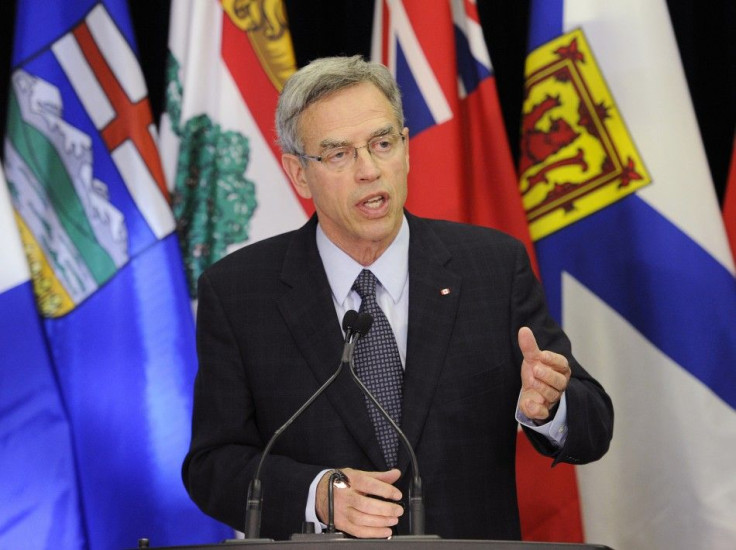Canada's Asian oil push not a slap to U.S.: minister

Canada is looking to diversify the market for oil sands crude by courting buyers in Asia, and is not trying to punish the United States for delaying TransCanada Corp's Keystone XL pipeline to Texas, the country's natural resources minister said on Friday.
Ottawa officials including Prime Minister Stephen Harper and Natural Resources Minister Joe Oliver have spent the past few weeks traveling to Asia, partly to sell China and other countries on the idea of buying oil from Canada.
It is certainly not meant to be a threat in any way. We've got one customer right now, we've got more resources than that customer needs, so we have to diversify our market, Oliver told a meeting hosted by the Ontario Energy Agency.
This is tremendously complementary with Asia, because they want to diversify their sources of energy. So we have a lot to talk about.
Some Canadian government and industry officials said last week, after the U.S. State Department pushed back a decision on the $7 billion Keystone XL pipeline by a year, that they would accelerate efforts to build a pipeline to the Pacific Coast from the Alberta tar sands.
Like Keystone XL, that proposal faces opposition from environmental groups. Regulatory hearings for the project, Enbridge Inc's C$5.5 billion ($5.4 billion) Northern Gateway pipeline, are set to begin in January.
Oliver said he was disappointed with the U.S. federal delay on Keystone XL, but pleased that TransCanada and the state of Nebraska had agreed to move a portion of the pipeline away from the environmentally sensitive Sand Hills region.
The State Department has said it will not make a decision before 2013 after extending its review.
We remain of the view that it will likely be approved, because it is really so important to the United States, Oliver said.
From the U.S. perspective, it offers jobs, economic growth and energy security - those are the three big issues particularly in this kind of environment. In Canada it offers jobs and economic growth.
This week, TransCanada executive said they would try to move forward on the southern leg of the pipeline to U.S. Gulf Coast refineries in the meantime, as a way to reduce a glut of crude at the Cushing, Oklahoma, storage hub.
Oliver also said a high priority for his government is to streamline the regulatory process for major energy projects, but he did not have any timing yet for new measures.
The ultimate goal is one project, one review. But of course it is about more than eliminating duplication. It is about putting timeframes in the pre-review and post-review process, he said.
($1=$1.03 Canadian)
© Copyright Thomson Reuters 2024. All rights reserved.





















